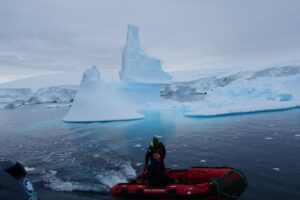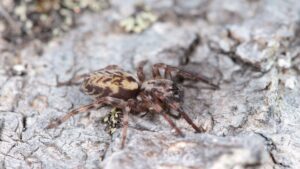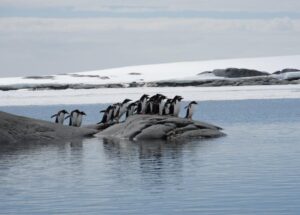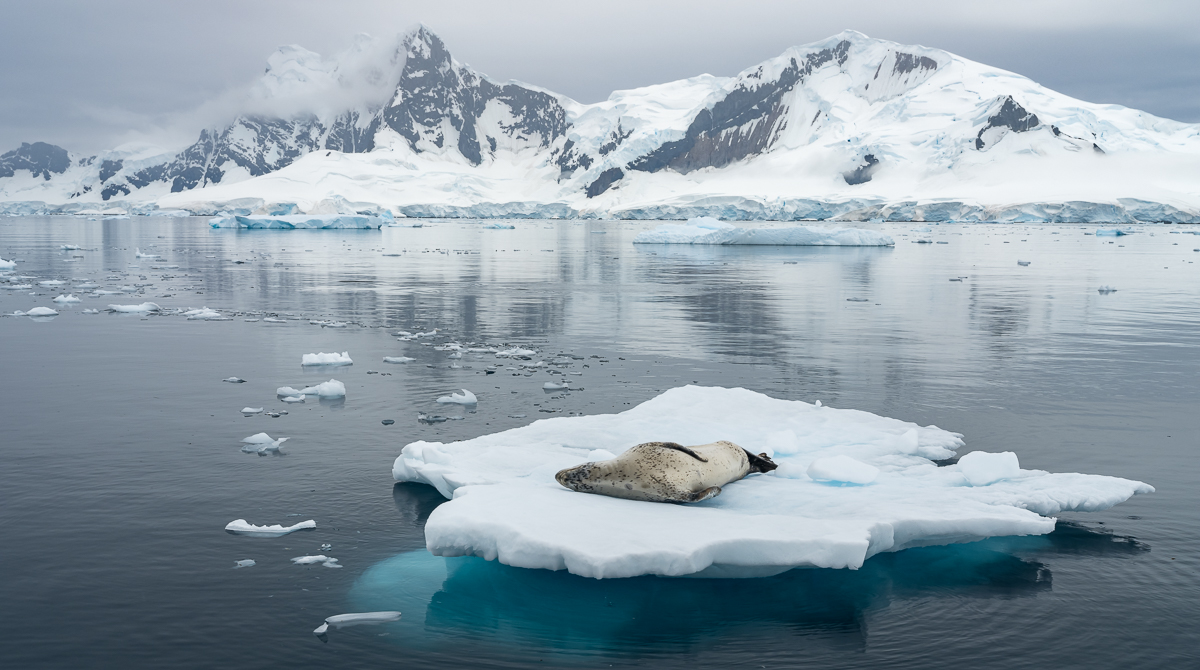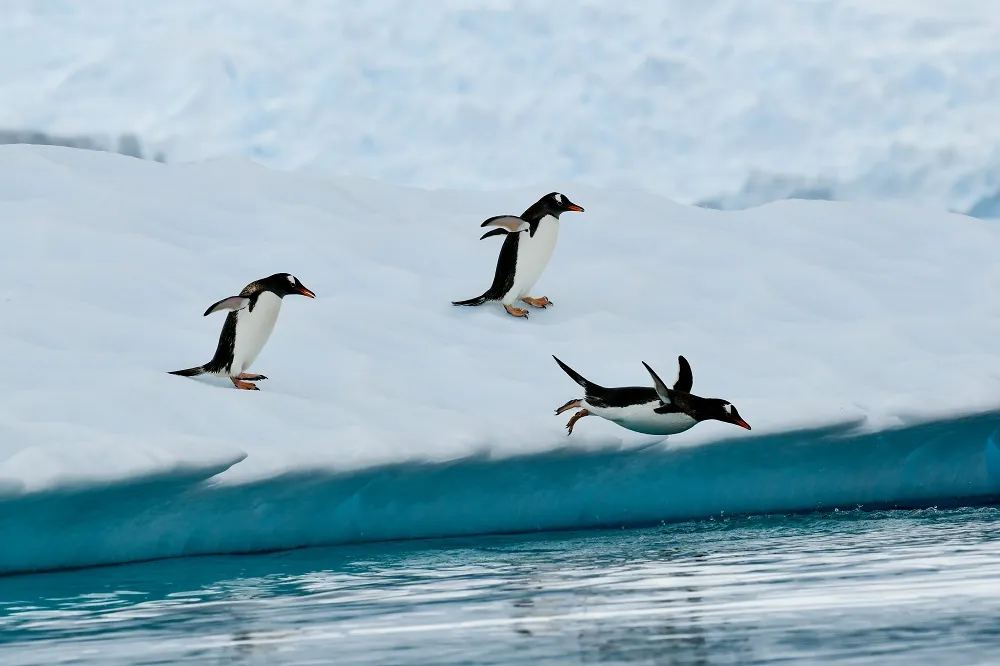Nothing epitomizes Antarctica quite like penguins! Below, we’ll explore Dr. Beaulieu’s research on how penguin vocalizations shift based on their social environment.
About him
First earning a doctorate in veterinary medicine, Dr. Michaël Beaulieu long aimed to work with animals, particularly wildlife. At the end of his studies in 2004, he found a job posting to study Emperor penguins at the French station Dumont d’Urville in Antarctica for over a year. He enjoyed the experience so much that he pursued a PhD on Adélie penguins, returning to the French station twice between 2006 and 2008 for fieldwork. He then shifted his focus to songbirds, first incorporating acoustics into his research at the University of North Carolina at Chapel Hill, and later at various universities in Germany. In 2018, when another opportunity arose to research penguin hearing at the German Ocean Museum, he took it and coordinated a trip around the Antarctic Peninsula with 60 South.
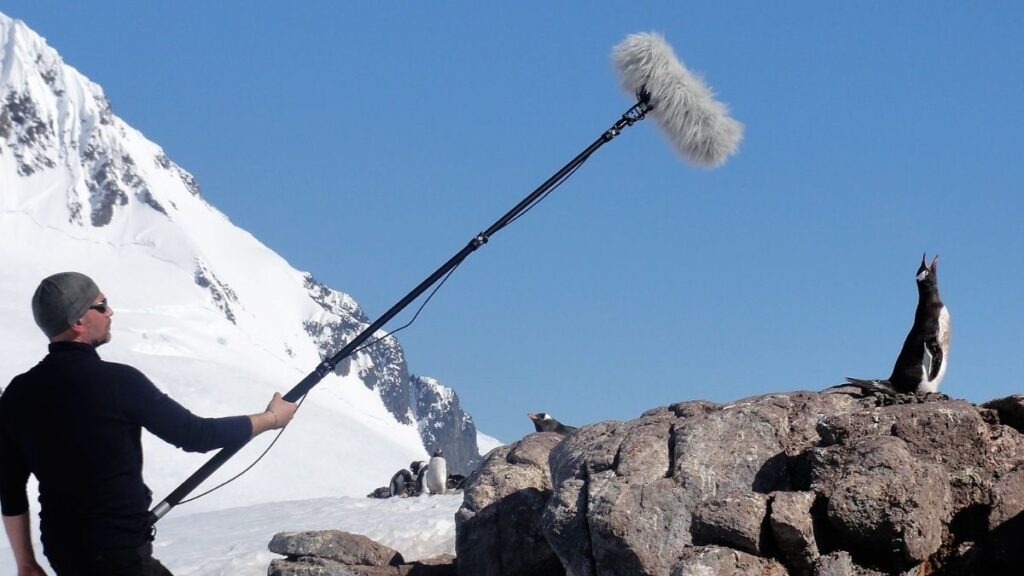
Research with 60 South
Beaulieu originally aimed to catalog all the sounds penguins were exposed to in their natural environment, but quickly redesigned the ambitious project on the boat to be more realistic. He also tailored the project to the boat’s limited research space while utilizing its mobility, allowing him to travel longer distances, visit numerous penguin colonies, and adjust locations as needed.
With this information, he recorded the calls of Gentoo penguins in colonies where only Gentoos bred, as well as mixed-species colonies with Adélie or Chinstrap penguins. He predicted that, just as songbirds adjust aspects of their calls in noisy cities, Gentoo penguins would modify their vocalizations to be heard over the background noise of other penguin species. To the human ear, it may seem unnecessary for the Gentoo penguins to change their calls around other species due to their already distinctive vocalizations- geese-like for the Adélie, metallic for the Chinstrap, and melodic for the Gentoo. However, the lack of natural sound insulation in open penguin colonies likely creates acoustic “pollution,” making it harder for penguins to distinguish calls compared to other birds nesting in burrows. The following year, his PhD student Helen Rößler collected additional recordings from new locations to increase the sample size and ensure more accurate analyses.
Dr. Beaulieu holds the microphone steady while recording a Gentoo penguin calling from a rocky outcrop against bright blue skies.
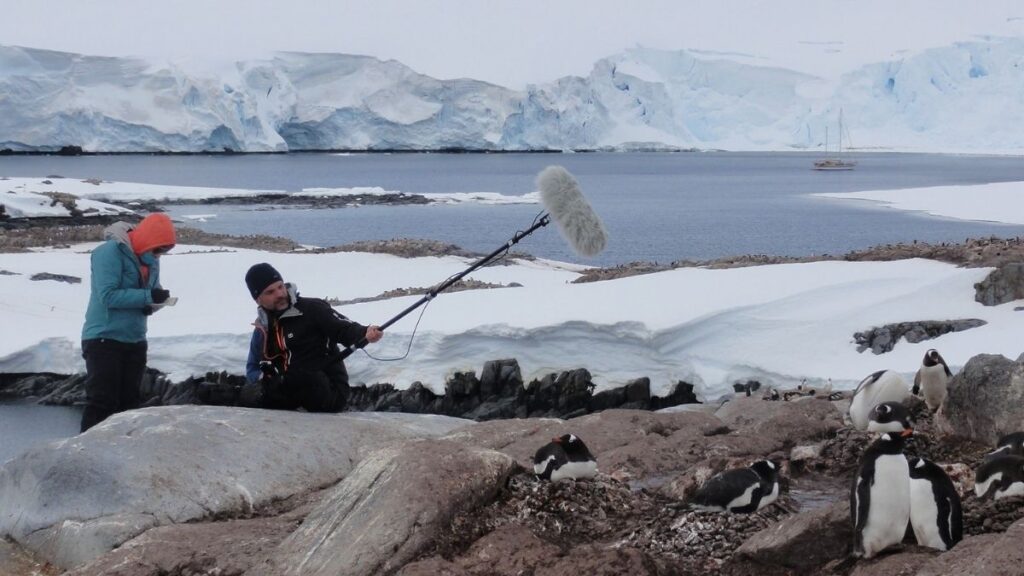
Rößler’s analysis confirmed the original hypothesis that the Gentoo penguins altered their vocalizations when breeding in mixed-species colonies, specifically by using lower frequencies. However, this variation only occurred near Adélie nests, while Gentoo penguins maintained their usual frequency around Chinstrap penguins. One explanation suggests that Gentoo vocalizations are more obscured by Adélie calls than by Chinstrap calls due to greater acoustical overlap. As a result, Gentoo penguins may modify their frequencies when breeding near Adélie penguins to cut through background noise.
However, because this data is correlational and came from observations of natural penguin behaviors rather than a controlled experiment, they cannot confidently conclude that Gentoos actively modify their calls to make them more audible. For instance, colonies with Adélie penguins may include larger Gentoo penguins that naturally produce lower frequency vocalizations, which could explain the research findings. Further experimental research, such as studies that test different vocalizations by playing recordings of other penguin species, could help uncover the exact cause.
Beaulieu and Rößler published their findings in this article in the scientific journal Ornithology, contributing to one-third of Rößler’s PhD thesis requirements. She also presented these findings at the 58th Annual Conference of the Animal Behavior Society, and at a public science conference at the German Ocean Museum. This presentation remains one of the most attended sessions in the museum’s history. Finally, these results appeared in the final report of the German Ocean Museum’s “Hearing in Penguins” project.
Since 60 South
In 2022, Beaulieu joined the Wild Animal Initiative, focusing on wild animal welfare science. The organization aims to broaden the conversation on welfare beyond just companion and farmed animals to include wild animals. While enthusiastically supporting the cause through desk-based research, he hopes to return to welfare fieldwork one day, especially if it includes penguins.
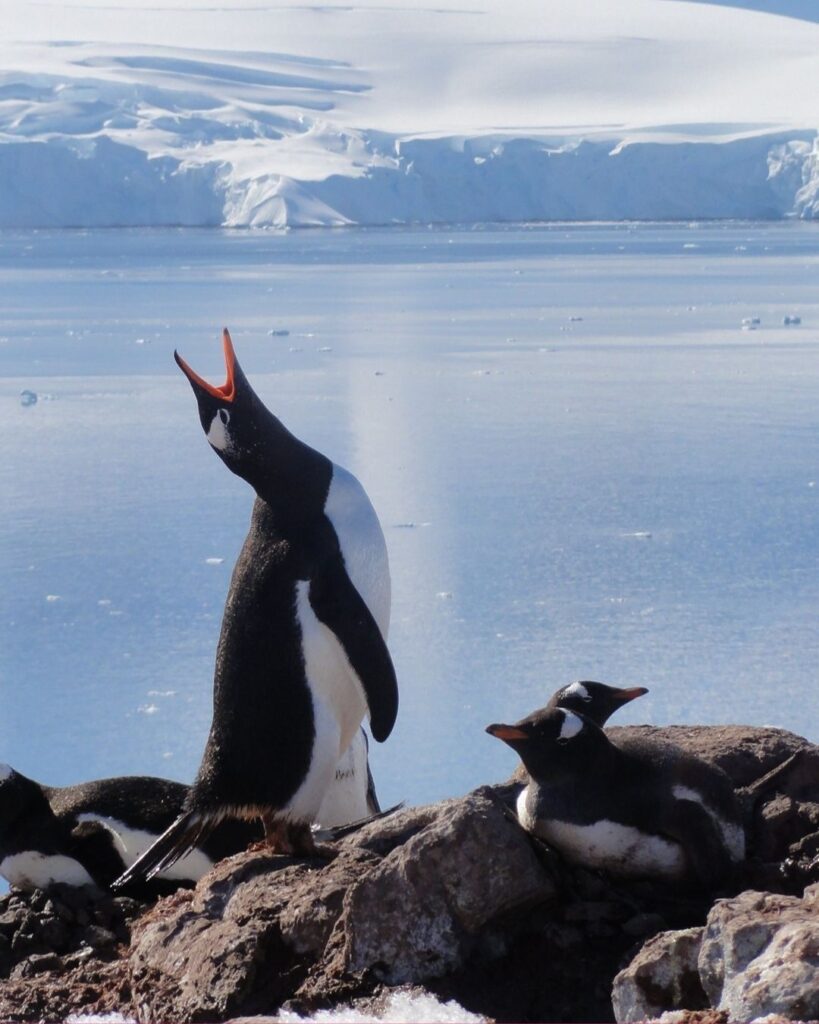
Notable Memories
Always enjoying time outside with live animals, Beaulieu loved visiting different colonies on the Peninsula. He says he explored more of Antarctica in three weeks than in the two years spent at the French station.
He also enjoyed sharing his research with the other passengers onboard Ocean Tramp. In addition to giving presentations about his work, the Antarctic fauna, and how to behave around penguins, he could actively involve them in his research. Each passenger had the opportunity to assist as his visual observer in the field, describing the penguins’ activities while he recorded their calls.
Finally, he enjoyed so much time around the Gentoos, admiring their beauty, relaxed attitude, and musical calls. Now, anytime he watches a documentary shot on the Antarctic Peninsula, he fondly remembers his incredible expedition with 60 South.
We’re grateful to work with Dr. Beaulieu and wish him the best with his research at the Wild Animal Initiative!

